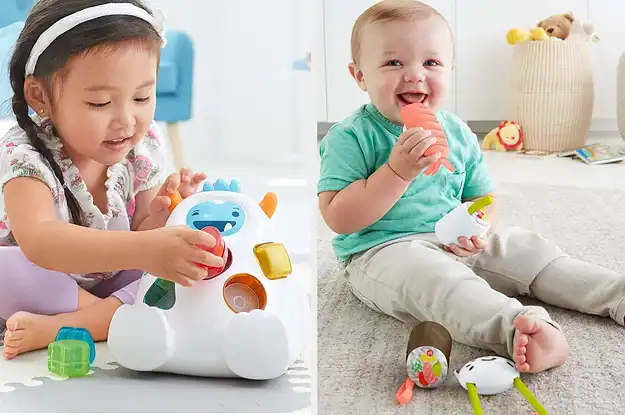One night, just over a month after giving birth, I felt the world come crashing down on me. I found myself weeping inconsolably on my kitchen tiles. My son's relentless cries pierced the silence of the night while my husband paced in the nursery, trying in vain to soothe him.
Each cry from my son was a glaring reminder of my perceived inadequacy as a mother. Why couldn't I comfort my child or relish every moment with him as portrayed in the movies and parenting books?
I was overwhelmed with a sense of embarrassment and isolated myself, dismissing all kinds of help in a bid to prove that I was coping. But I was far from it. I was struggling deeply with my mental health.

It was only when my friends began having their babies that I realized that the postpartum mental health issues I was grappling with weren't a personal failure, rather a common, albeit seldom discussed, reality.
A recent study published in JAMA Internal Medicine validated my experience and shed light on the mental health struggles faced by mothers in the modern age. The study revealed a startling 64% increase in new mothers reporting fair or poor mental health compared to a decade prior.
Perinatal psychiatrist Dr. Nicole Taylor highlights the challenging aspects of motherhood and how it affects our mental and physical health. Furthermore, the study emphasizes the duality of emotions a new mother is likely to experience, experiencing joy and love while simultaneously battling mental health issues.
According to the report, only 26% of mothers today, down from 38% a decade ago, report having excellent mental health. And more mothers are admitting their mental health is only “fair.”
Such troubling statistics made me reflect on the perils of new motherhood. Are all new mothers barely hanging by a thread, struggling to cope in the demanding role of motherhood?
Imagine landing your dream job. The excitement and anticipation are palpable, but the reality is an exacting boss who is always demanding, never satisfied. The toll it takes on you is both physical and emotional, yet there is no break or time off. Your performance directly affects the life of another.
You reach out to your colleagues for support, only to be told how lucky you are to have such an opportunity. The likelihood of enduring such conditions is slim. Yet motherhood, unlike a job, doesn't come with a notice period or an HR department to air grievances.
Change is inevitable when you become a new mother. It can be exhilarating and fulfilling, but also overwhelming and demanding. Struggling under the weight of such a seismic shift is natural.
The first step towards improving postpartum care is normalization. This validates the experiences of new mothers, making them feel less alone, and creates an environment in which they feel comfortable to ask for help.
Ironically, while I was desperate to prove that I had everything “figured out,” I was too afraid to seek support or admit my struggles. Even if help was readily available, I wouldn’t have known where to start looking for it.
Unfortunately, many mothers are unaware of the assistance available to them, or they believe things will get better momentarily. This is where healthcare providers can positively step in if adequately trained.
Increased awareness can result in greater funding for mental healthcare and legislative changes for improved postpartum care. No mother should feel alone or unsupported in this critical phase of her life, regardless of her socio-economic circumstances.
But even if all mothers had access to mental healthcare and paid leave, there would still be inevitable challenges associated with the transition to motherhood.
There were positives to my journey of motherhood. But equally, there were moments of extreme difficulty, where I felt burdened by the new responsibilities and obligations associated with my changed identity.
In hindsight, the moment of desperation I felt on the kitchen floor was a catalyst for change. I realized I was placing too much pressure on myself and needed to prioritise my needs to be a better mother.
Here are a few of my personal recommendations that helped me regain control:
Start by making daily walks a non-negotiable. Regardless of how tired or overwhelmed you may feel, step outside and breathe in the fresh air. Invite a friend or family member for company if possible. This small but significant change can help reduce stress and provide a much-needed energy boost.
Next, invite people over, even if you are exhausted or don’t feel presentable. Adult conversation and a change of scenery can do wonders for your mental wellbeing. Plus, you could finally have that hot shower you’ve been longing for!
Gradually start going out in public with your baby, starting with drive-thrus or grocery pickups. These small victories will slowly build confidence, making you feel less trapped and more at ease navigating your new life.
Finally, don’t forget to treat yourself. Do something that makes you happy and reminds you of pre-motherhood life. It could be as simple as doing your makeup or mopping the floor.
Raising awareness and normalizing discussions about postpartum health are crucial steps in addressing the growing mental health issues among new mothers. We need to remember that it's okay to admit you're struggling and ask for help. Motherhood, like any new job, can be tough. But remember, you're not alone, and it's time we all accepted this reality.